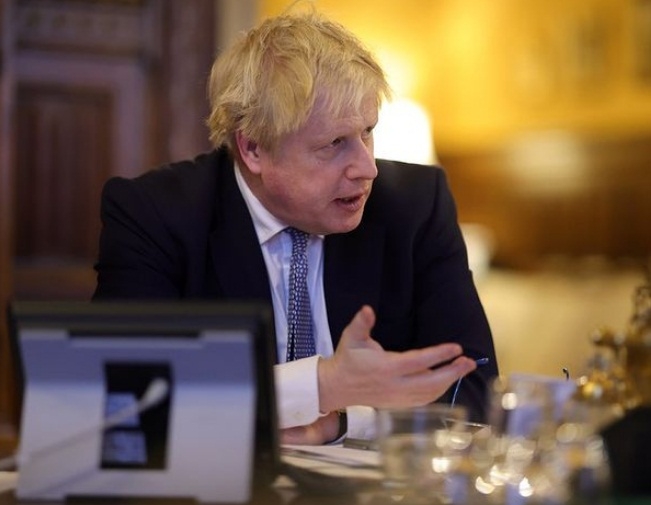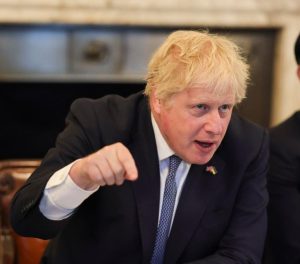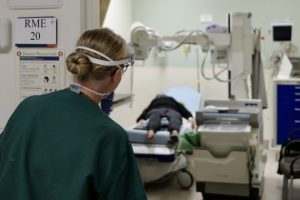Dismissing the implications drawn from the diary extracts, Johnson insisted that his position was centered on saving human life across all age groups…reports Asian Lite News
Former British Prime Minister Boris Johnson vehemently denied pursuing a “let it rip” strategy in managing the coronavirus pandemic during his testimony at the Covid inquiry. Insisting that he actively contributed counter arguments to challenge consensus in meetings, Johnson asserted that his actions aimed to curb the virus rather than allowing it to freely spread through the population. His testimony focused on countering accusations of being slow to react when Covid-19 cases surged again in the autumn of 2020.
Facing nearly ten hours of questioning, Johnson passionately rejected the notion that he was reluctant to enforce a second lockdown, dismissing claims that he prioritized keeping the economy open over protecting vulnerable populations. During a particularly tense exchange, he labelled such ideas as “rubbish” and emphasized his commitment to “save human life at all ages.”
The second day of Johnson’s testimony delved into the events of the autumn of 2020, with accusations that he delayed reimposing restrictions as cases rose. Reference was made to Sir Patrick Vallance’s diary, the government’s chief scientific adviser at the time. Johnson was confronted with an entry from October, quoting him as advocating for “letting it all rip” and suggesting that potential victims had “had a good innings” and “reached their time anyway.” The inquiry’s lead lawyer insinuated that these “secretly held” views influenced Johnson’s reluctance to reimpose restrictions, to which he vehemently disagreed.
Dismissing the implications drawn from the diary extracts, Johnson insisted that his position was centered on saving human life across all age groups. He defended his decisions, emphasizing that the government implemented lockdown measures as soon as feasible and highlighting his role in challenging consensus during meetings.
In addressing the language he used, Johnson expressed regret for any “hurt and offence” caused, attributing his unpolished communication style to fostering an environment where others felt free to express themselves. He disputed the accuracy of reported accounts, stating that some described words were unfamiliar to him. As protesters demonstrated outside the inquiry building, holding pictures of lost loved ones and expressing their grievances, Johnson maintained his position that his actions throughout the pandemic were driven by a commitment to safeguarding human life.
ALSO READ-Sunak’s Diplomatic Misstep Deepens Concerns in Tory Circles






